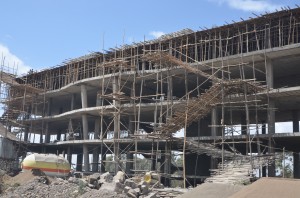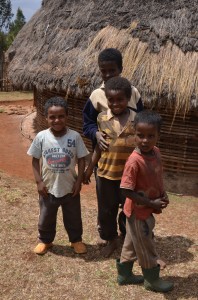From Rural to Urban in 60 Seconds or Less?
Apr 22nd, 2013 | By admin | Category: Water IssuesBy Suzanne York, www.howmany.org
As we celebrate Earth Day this year, it is a good time to think about how we can improve not just the environment but also peoples’ lives. In the face of globalization and the push for endless economic growth, our societies need to determine the best way to grow and where and when it’s needed.
The use of natural resources – especially water – is key to creating sustainable communities, especially as the world becomes more urbanized. It is already half urban, and by 2050 it is predicted that 70% of the human population will live in cities. The question of how we grow is a critical part of the discussion on the planet’s future.
Most of the world’s population growth will take place in Sub-Saharan Africa. The United Nations projects that the population of the continent could double from 1.1 billion to over 2 billion by 2050.
Today many African countries are experiencing increased economic growth. Improving living standards of developing countries and getting people out of poverty should be a main goal, but it shouldn’t be at the expense of the ecosystem. A closer look at Africa shows that development is often occuring at breakneck speed, with resource use seemingly given little thought. Throw in climate change and the challenges increase.
Take Ethiopia. Less than 20 percent of Ethiopians live in cities, but by the looks of things in the capital of Addis Ababa, you’d think the city is preparing for an urban assault.
Everywhere you look something is under construction. Much of it is spurred by foreign investment, mainly by China. Traffic is getting much worse, as is air pollution. Condos are being built without running water. It’s almost as if no one in Addis looked around at how other cities have grown rapidly and sprawled out and suffered negative consequences – from Nairobi to Lagos to Los Angeles.
The UN noted that Addis is one of the fastest growing cities in Africa, with a population that has nearly doubled every decade. With approximately 3.4 million inhabitants today, the city could even reach 12 million by 2024.
Rampant growth, lack of resources, poverty, inequity, and increasing climate change impacts are likely to create havoc in Addis and beyond. Recently it was reported that the Sahara Desert is spreading south at a rate of 30 miles per year.
UN Habitat has stated that “Environmental degradation is threatening at an alarming scale and remains a threat to the socio-economic development of the city.” A report by the UN found the following:
-
35 percent of the solid waste generated in Addis is not collected but instead dumped into rivers, ditches and open spaces;
-
river, soil, air and water pollution, mainly due to industrial wastes, are becoming growing concerns;
-
a lack of adequate water and sanitation forces residents to use rivers for both personal hygiene and for disposing sewage.
To make matters worse, there is weak enforcement of environmental regulation.
Perhaps Addis will see what uncontrolled growth is doing to quality of life. There are reasons to be hopeful.
One reason is dedicated local organizations such as the PHE Ethiopia Consortium, made up of over 40 Ethiopian groups, working to empower people throughout the country. In a nutshell, they mainly work in rural areas to help Ethiopians that want to stay in the country do so, by providing education, health care, family planning services, and natural resource management.
And much hope lies in innovative and entrepreneurial ideas that can help Addis and other cities cope with rising resource demands. Regarding water, this means greater conservation and efficiency, recycling floodwater and wastewater for safe use, protecting wetlands and watersheds, and restoring natural floodplains.
Ultimately, decision-makers in Addis need to think in the long-term and put residents and the environment over growth and profits. Moreover, they should work with the global community and share best practices on how to manage precious resources, especially in light of climate change. And the rest of the world should support Ethiopians and demand healthy and sustainable cities.
Suzanne York is Senior Writer with the Institute for Population Studies.


